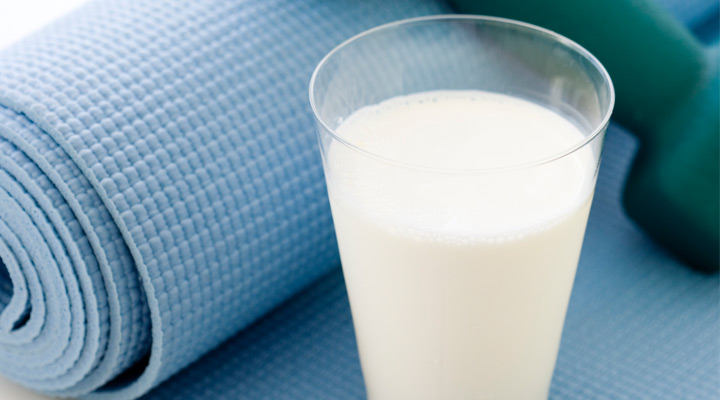
Bone health
Most people only think about their bones once they get a fracture or reach older age. But bones are the body's foundation, providing support and structure, while also protecting organs. Being proactive and building healthy, strong bones is critical to leading a long, healthy, active and independent life.
Bones are living tissue, constantly in a state of renewal, so building and maintaining bones is a lifelong affair. The key to achieving strong bones involves a mix of weight bearing exercise, calcium-rich foods such as milk, cheese and yoghurt and vitamin D from safe sun exposure, foods or a supplement.
Not looking after bones can increase the risk of osteoporosis, a disease which sees bones become brittle and at high risk of fracture. In Australia, osteoporosis affects one in two women and one in three men over the age of 60 years.
Bone health is determined by both genetics and lifestyle factors, and adopting a bone-friendly lifestyle at any age can help reduce the risk of osteoporosis.
Childhood
Childhood presents the best opportunity to build bone strength and ultimately reduce the risk of osteoporosis in later years. Along with the rest of their body, children's bones are growing rapidly throughout this period, so it's critical that children receive enough daily calcium to ensure their bones achieve their maximum strength.
Children can get the calcium they need by ensuring they get their recommended serves of calcium-rich dairy foods every day.
Learn more about the dairy recommended intake for children
Teenagers
Teenage years are another massive growth period. Over roughly two years (12-14 for girls and 13-15 for boys) teens' bodies build one-quarter of their adult bone mass. So it's a critical time for teenagers to exercise and stockpile their bones with calcium from the diet.
Between the ages of 12-18 years calcium requirements increase. As such, teens need 3.5 serves from the dairy food group each day. A serve from the dairy food group is a cup (250ml) of milk, three-quarters of a cup (200g) yoghurt, two slices (40g) of cheese, or half a cup (120g) of ricotta cheese.
Building strong bones also requires exercise. Like muscles, bones respond to weight-bearing exercise like running, lifting weights or sports involving jumping. When bones are made to bear more weight than they are used to, they develop increased strength or bone density.
Adults
By the late twenties, adults have built up as much bone as they'll ever have. From around 40, bones gradually lose bone minerals such as calcium and gradually become weaker. With that in mind, it's vital adults meet their daily calcium needs to maintain bone health.
Meeting the Australian Dietary Guidelines recommendations of 2.5 serves of milk, cheese, yoghurt and/or alternatives can ensure adequate dietary calcium. A serve from the dairy foods group is a cup (250ml) of milk, three-quarters of a cup (200g) yogurt, two slices (40g) of cheese, half a cup (120g) of ricotta cheese.
As parents, leading a healthy lifestyle is one of the best ways to teach and encourage children to adopt good lifelong habits. In fact, research shows parents who consume more dairy foods have children who consume more dairy.
Exercising regularly, and including the right mix of weight-bearing sport and exercise will help maintain bone strength plus improve muscle strength.
Seniors
Following menopause, women begin to lose bone mass rapidly and by the age of 65 both men and women lose bone mass at the same rate. There are a number of ways to slow this down with a healthy lifestyle:
- Eat plenty of calcium-rich foods like milk, cheese and yoghurt
- Spend some sun-smart time outdoors to get vital vitamin D
- Get the right type of exercise regularly
To meet calcium requirements, women over 50 and men over 70 require four serves of milk, cheese, yoghurt and/or alternatives. An easy way to achieve this is to include a serve at each meal and one snack. A serve from the dairy food group is a cup (250ml) of milk, three-quarters of a cup (200g) yoghurt, two slices (40g) of cheese or half a cup (120g) of ricotta cheese.
Exercising regularly will help maintain bone strength plus improve muscle strength. Exercises that focus on muscle strengthening, balance and co-ordination are recommended to help prevent falls.
Before starting any exercise regimen, it's recommended to check with a doctor or health professional first. A physiotherapist can recommend exercises that are appropriate for each individual, particularly if they have suffered a fall, or are at risk of a fracture.
To find out more about the importance of calcium for our bones, visit our Healthy Bones website.